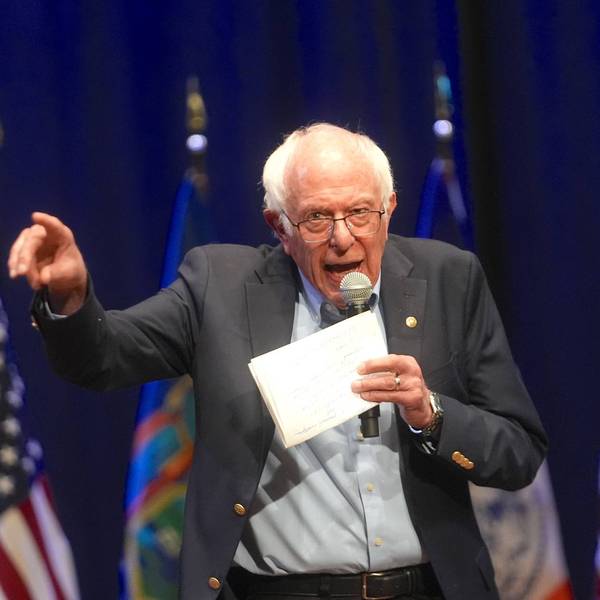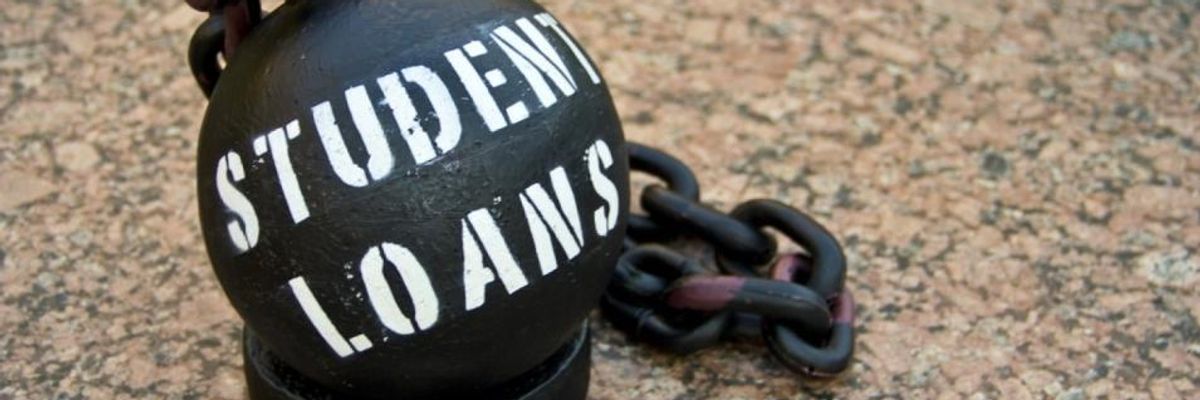The Department of Education was forced on Tuesday to implement an Obama-era student debt relief rule that it has delayed for over a year, after a U.S. District Court rejected attempts by the Trump administration and an industry group to convince the court that the rule is unfair to for-profit colleges.
U.S. District Judge Randolph D. Moss said the rule must go into force immediately, allowing students with fraud claims against for-profit educational institutions to potentially have their debt canceled.
"Today's decision is a huge win for defrauded borrowers around the country," said Julie Murray, an attorney with the consumer advocacy group Public Citizen. "The rule is finally in effect. No more excuses. No more delays. Industry will continue to challenge the rule in court, but we will work as long as it takes to defeat those corporate interests and an administration beholden to them."
The rule was set to go into effect in July 2017, but Education Secretary Betsy DeVos delayed it a month earlier. Under the regulation, the Obama administration had clarified how students can have their loans canceled if their school is found to have committed fraud, as the Corinthian Colleges chain was in 2014 and Trump University was earlier this year.
"It's extremely validating to see a court agree that what the Department did was wrong, and to know that students who were cheated will finally be able to seek relief." --Meaghan Bauer, plaintiff
After DeVos delayed the borrower defense rule, two former students with fraud claims sued the Education Department with the help of Public Citizen and the Project on Predatory Lending.
"This is a major victory for students across this country in the ongoing battle against the Department of Education and the for-profit college industry," said Toby Merrill, director of the Project on Predatory Student Lending. "Students did not stop fighting to get this rule implemented, and now because of their work these important and long-delayed protections will immediately go into effect."
Last week, DeVos announced she would not seek to delay the rule further, following another District Court ruling which last month called her attempts to stymie the regulation "arbitrary and capricious." On Tuesday, solidifying the victory for students, Moss ruled that the industry group, the California Association of Private Postsecondary Schools, had failed to prove schools would be harmed if students are permitted to cancel their debts in the event of fraud.
This past summer, DeVos introduced her own version of the student debt rule, under which students would need to prove that schools had knowingly defrauded them in order to be eligible for debt cancellation. The proposed rule was denounced by California Attorney General Xavier Becerra as "flawed, harmful, and erroneously justified" when it was unveiled.
As the Washington Post reported, the Education Department has been inundated with public comments about DeVos's proposal--forcing her rule into a delay. The earliest her regulation can potentially replace the Obama administration's rule is July 2020.
"It's extremely validating to see a court agree that what the Department did was wrong, and to know that students who were cheated will finally be able to seek relief," Meaghan Bauer, one of the students involved in the litigation, said in a statement. "I hope these rulings remind the Department of Education of its obligation to care for its citizens who are the future of this country and that it will start to act in the interest of students instead of focusing on lining the pockets of for-profit institutions."




